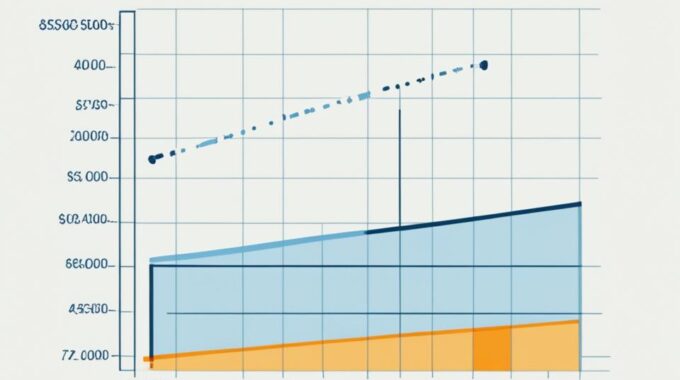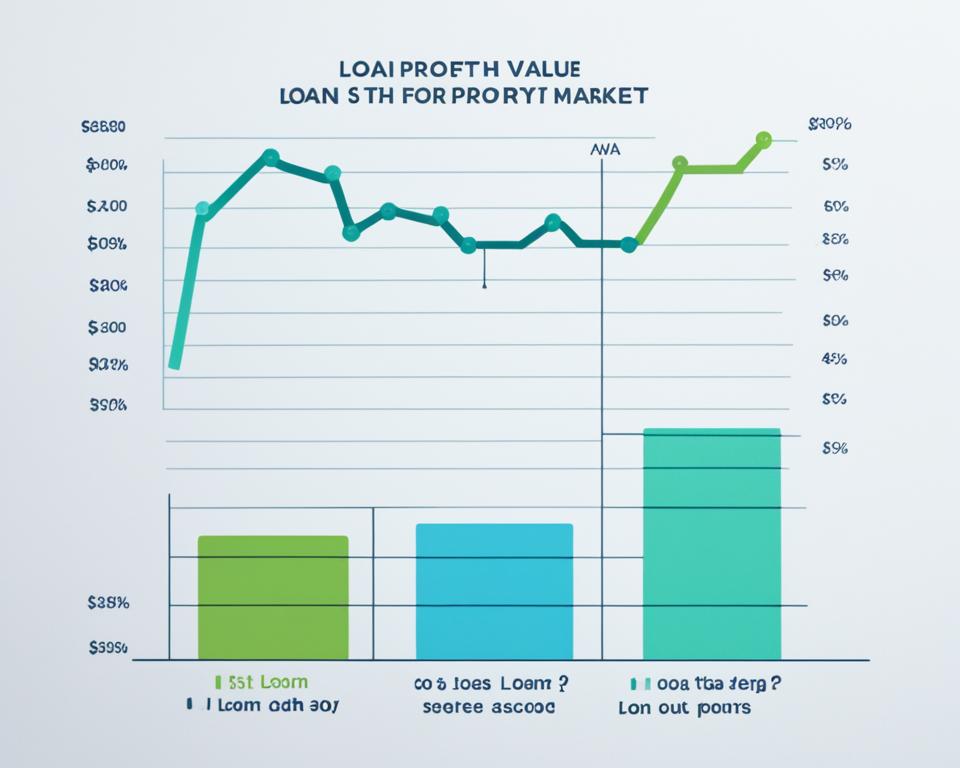Discover how to access significant funds with a Home Equity Loan Costa Rica. We offer competitive rates, flexible terms, and lower fees. Simplify your financing process today.

How Do Private Lenders Use a Loan to Value Calculator
In the real estate and lending world, knowing loan-to-value calculations is key. It’s extra essential for private lending. So, you might wonder – How Do Private Lenders Use a Loan to Value Calculator? This piece will help you understand. It explains how private lenders figure out risk, establish loan amounts, and decide on lending. We’ll look into how loan-to-value calculations work in private lending, specifically in Costa Rica. Then, find out how companies like Gap Equity Loans use these methods for their lending needs.
Key Takeaways
- The Loan-to-Value (LTV) ratio is a critical factor in the lending decision process for private lenders in Costa Rica.
- Private lending has gained significant traction in Costa Rica’s real estate market in recent years.
- Private lenders often provide more flexible terms and faster processing times compared to traditional banks.
- A lower LTV ratio indicates a less risky loan, making it more likely to be approved by private lenders in Costa Rica.
- Gap Equity Loans, a leading private lender in Costa Rica, utilizes the LTV ratio to assess risks and determine suitable loan terms for clients.
Introduction to Private Lending in Costa Rica
In Costa Rica’s real estate market, private lending plays a big role. It’s different from banks. Private lenders give more flexible and personal loan options, which is great for both investors and property owners.
Role of Private Lending in Costa Rica’s Real Estate Market
The use of private lending is growing fast in Costa Rica. This is because it offers speed, flexibility, and easy access to money. Real estate investors can get fast funding, choose flexible terms, and even secure loans with their property as collateral.
Importance of Loan-to-Value Calculations for Private Lenders
The Loan-to-Value (LTV) ratio is key in Costa Rica’s private lending. It helps private lenders like Gap Equity Loans understand the risk and set the right loan terms for their clients.

To calculate the LTV ratio, you divide the loan amount by the property’s appraised value and multiply by 100. It shows how private lenders evaluate risk and make loan decisions in Costa Rica.
What is a Loan-to-Value Ratio?
The loan-to-value (LTV) ratio shows the relationship between a loan’s size and a property’s worth. It’s vital in the lending world. This ratio is figured by dividing the loan amount by the property’s appraised value, then multiplying by 100 to get a percentage.
Definition and Importance of Loan-to-Value Ratio
When rating a loan’s risk, the LTV ratio is crucial for lenders. If it’s lower, the loan is less risky. This is because the borrower has put more money into the property. But, a higher ratio means more risk for the lender.
How Loan-to-Value Ratio Influences Lending Decisions
The LTV ratio plays a huge role in what interest rate you get. Lenders often give the best rates when this ratio is 80% or less. Yet, some programs let you borrow with only 3% down but need you to get private mortgage insurance (PMI) until the ratio improves.
It’s important for everyone in real estate to grasp the LTV ratio‘s impact. Understanding this helps with knowing the risks, loan approval chances, and interest rates. It’s key to making smart choices.

Calculating the Loan-to-Value Ratio
Figuring out the loan to value ratio is simple. We will show you the steps. This ratio is important for private lenders in Costa Rica to decide on a loan’s risk.
The Process of Calculating Loan-to-Value Ratio
First, you need two main pieces of info to find the loan to value ratio:
- The mortgage amount or the loan you want to get
- The appraised value of the home
With these numbers, finding the loan to value ratio is easy. Divide the loan amount by the home’s appraised value. Then multiply by 100 to get the percentage.
The formula looks like this:
Loan-to-Value Ratio = (Loan Amount / Appraised Value) x 100
Illustrative Loan-to-Value Calculation Example
Imagine you want to buy a $500,000 home in Costa Rica. You’re asking for a $400,000 loan. The loan to value ratio is:
Loan-to-Value Ratio = ($400,000 / $500,000) x 100 = 80%
In this case, the loan to value ratio is 80%. That’s a guideline used by private lenders in Costa Rica. Knowing this ratio is key when you’re borrowing for real estate.

How Do Private Lenders Use a Loan to Value Calculator
Private lenders heavily rely on the Loan-to-Value Calculator. It compares the loan amount to the property’s appraised value. This comparison gives the Loan-to-Value (LTV) ratio. A lower LTV ratio shows a less risky loan. This means the borrower has more property equity. A higher LTV ratio is riskier because it shows the borrower has less property equity. It’s vital for lenders and borrowers to understand this ratio.
Gap Equity Loans in Costa Rica use the LTV ratio to evaluate loan risks. It affects loan approvals and interest rates. By analyzing the LTV ratio, private lenders can wisely decide on loan amounts and risk profiles.
To calculate the LTV ratio, the loan amount is divided by the property’s appraised value. Then, you multiply by 100 to get a percentage. This process is crucial for lenders to know the borrower’s property equity. It helps with their decision-making.

| Loan Amount | Appraised Value | Loan-to-Value Ratio |
|---|---|---|
| $200,000 | $250,000 | 80% |
| $300,000 | $400,000 | 75% |
| $150,000 | $180,000 | 83.33% |
The Loan-to-Value Calculator improves how lenders in Costa Rica assess loan risks. This tool, combined with other metrics, guides them in managing risk and deciding on loans.
The Rise of Private Lending in Costa Rica
Private lending is becoming big in Costa Rica’s real estate scene. This trend is because Costa Rica’s banks are not very flexible. People need easier ways to get money for buying homes. Private lending steps in to offer this needed flexibility, speed, and accessibility.
Advantages of Private Lending for Real Estate Investments
Private loans are easier to get than loans from traditional banks in Costa Rica. Firms like Gap Investments help people find the right loan. This makes the process quicker for those in the real estate market.
This way of funding also means investors get loan terms that work for them. It ensures they have the money they need for new real estate deals. This is perfect for those whose needs don’t meet what banks usually offer. It helps them make the most of chances in Costa Rica’s dynamic real estate market.
Private lending also makes getting loans more accessible. Firms like Gap Investments listen to borrowers’ needs. They then adjust their offers to fit. This makes private lending a top choice for many real estate investors in the country.

Gap Equity Loans: A Leading Private Lender in Costa Rica
In Costa Rica’s private lending scene, Gap Equity Loans is a key player. They are known for offering financial solutions that meet their clients’ needs perfectly. Their main focus is on equity loans, which use a property’s equity as security.
Success Stories of Gap Equity Loans
Gap Equity Loans stands out for its role in real estate investments in Costa Rica. Their unique private lender services have helped many investors and property owners. This allows them to get the funds needed for great opportunities.
John Hernandez, a top real estate developer, found help with Gap Equity Loans. He needed funds for a new commercial property project. “Gap Equity Loans understood what I wanted,” John explained. “They gave me the right gap equity loans quickly. Their flexible terms were a big part of making the project work.”
Also, Maria Gutiérrez expanded her vacation rentals with Gap Equity Loans. “The help from Gap Equity Loans let me buy more properties,” Maria said. “Their unique loan options and teamwork really helped me in my business.”
These stories show how Gap Equity Loans has helped build real estate investments in Costa Rica. By offering easy-to-use private lender services, they help people reach their financial dreams.

Requirements for Obtaining a Hard Money Loan
Hard money loans are often used for real estate. They come from private lenders, like Gap Equity Loans. To get one in Costa Rica, there are some important steps you must follow.
Role of Property Appraisal and Proof of Ownership
The first step is getting your property looked at. Private lenders check its value to decide on the loan. You must also prove you own the property by showing a title or deed.
How Gap Equity Loans Facilitates the Process
Gap Equity Loans works to make the loan process easier. We help you from start to finish. Our team assists with property appraisals and checks your ownership documents. We aim to offer loans that fit your needs in Costa Rica’s real estate scene.

Conclusion
Playing with loan-to-value numbers is key in Costa Rica’s real estate world. Private lenders, such as Gap Equity Loans, use these figures to manage risks and decide on loan sizes. This helps make financing for property investment smooth.
Costa Rica stands out by offering flexible private loans. People can get up to half of their property’s value easily. This feature isn’t so easy to find in traditional banks.
Thanks to lenders like Gap Equity Loans, diving into Costa Rica’s real estate is simpler and more fruitful. Paying attention to loan-to-value details and private funding gives investors a financial edge. It allows them to take full advantage of Costa Rica’s lively property market.
FAQ
What is the role of private lending in Costa Rica’s real estate market?
In Costa Rica, private lending plays a big role in real estate. It’s different from banks. They’re more flexible and personal, which many like.
Why is understanding the loan-to-value ratio important for private lenders?
Understanding the loan-to-value (LTV) ratio is key for private lenders. It shows the risk in a loan by comparing funds to property value. A lower ratio means the loan is less risky.
How do private lenders calculate the loan-to-value ratio?
To find the LTV ratio is simple. They just divide the loan amount by the property’s value. This gives them a number shown as a percentage.
How do private lenders in Costa Rica use a loan-to-value calculator?
In Costa Rica, lenders like Gap Equity Loans use calculators for LTV. It’s a risk tool. It helps in deciding the best loan amount based on the property’s worth.
What are the key requirements for obtaining a hard money loan in Costa Rica?
To get a hard money loan in Costa Rica, you need a property appraisal, proof of ownership, and to meet certain criteria. Gap Equity Loans and others care more about your property’s value than your credit.
Source Links
- https://www.gapequityloans.com/en/loan-to-value-calculator-blog/
- https://www.investopedia.com/terms/l/loantovalue.asp
- https://www.wallstreetprep.com/knowledge/loan-to-value-ltv/
- https://gapinvestments.com/en/how-does-investment-property-financing-work-in-costa-rica/
- https://gapinvestments.com/en/secure-loans-in-costa-rica/
- https://www.gapequityloans.com/en/is-it-hard-to-get-a-mortgage-in-costa-rica-2/
- https://gapinvestments.com/en/private-loans-in-costa-rica/
- https://gapinvestments.com/en/loan-to-value-ltv-the-best-criteria-for-private-money-investing-in-costa-rica/
- https://www.gapequityloans.com/en/costa-rica-home-equity-loans/
- https://www.gapequityloans.com/en/construction-loans/
- https://www.gapequityloans.com/en/understanding-the-loan-to-value/
- https://www.gapequityloans.com/en/equity-loans-faq/
- https://gapinvestments.com/en/requirements-for-a-hard-money-loan-in-costa-rica/
- https://www.mortgagecalculator.org/calcs/hard-money-loans.php
- https://www.gapequityloans.com/en/costa-rica-home-equity-loans-guide/
Article by Glenn Tellier (Founder of CRIE and Grupo Gap)



